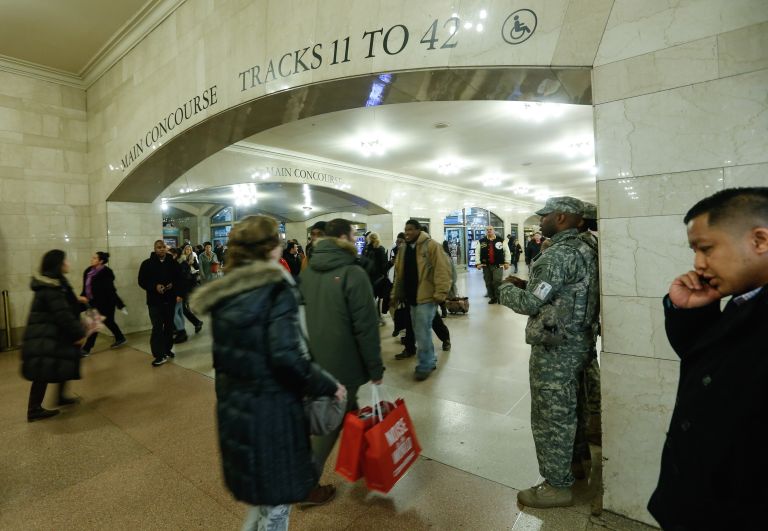US Debt Limit: Potential August Expiration Sparks Concerns

Table of Contents
Understanding the US Debt Ceiling Crisis
The US debt ceiling, also known as the debt limit, is a legal limit on the total amount of money the US government can borrow to meet its existing obligations. It's not a limit on spending; rather, it's a limit on the government's ability to finance already-authorized spending. Congress sets this limit, and when it's reached, the Treasury Department must employ extraordinary measures to avoid default.
Historically, raising the debt ceiling has been a routine process. However, in recent years, it has become increasingly politicized, leading to several near-defaults and periods of intense uncertainty. The consequences of past debt ceiling debates have ranged from market volatility to temporary government shutdowns.
Key players in the debt ceiling debate include:
- Congress: Responsible for setting and raising the debt ceiling through legislation.
- The Treasury Department: Manages the government's finances and implements measures to avoid exceeding the debt limit.
- The President: Plays a crucial role in negotiating with Congress and advocating for a solution.
The current debt ceiling crisis stems from the need to finance existing government spending commitments, which have exceeded the current borrowing limit. This necessitates a timely increase in the debt limit to avoid a potential default, a scenario with potentially devastating consequences.
Potential Economic Ramifications of Reaching the Debt Limit
Reaching the debt limit without raising it could lead to a US government default, a situation with potentially severe economic ramifications. The consequences could include:
- Credit rating downgrades: A default could damage the US's credit rating, increasing borrowing costs for the government and the private sector.
- Increased interest rates: Higher borrowing costs would translate into higher interest rates on everything from mortgages and auto loans to business credit.
- Market volatility and potential recession: Uncertainty and fear surrounding a default could trigger market volatility, potentially leading to a recession.
- Impact on global financial markets: The US plays a crucial role in the global economy. A US default would create significant uncertainty and instability in global financial markets.
Beyond a full-blown default, the failure to raise the debt ceiling could also lead to a government shutdown. A shutdown would disrupt essential government services, affecting federal employees, contractors, and the public. The economic fallout from a shutdown could be significant, further compounding the risks associated with failing to act.
Political Implications and Negotiations
The political dynamics surrounding the debt ceiling debate are complex and often fraught with tension. The debate often becomes a battleground between different political factions, with disagreements on government spending levels and priorities contributing to political gridlock. Reaching a bipartisan compromise is crucial to avoiding a crisis, but finding common ground has proven increasingly challenging in recent years.
The differing viewpoints often center on fiscal policy. Some advocate for responsible spending cuts to reduce the national debt, while others prioritize maintaining existing government programs and services. The negotiations are often characterized by intense pressure and high stakes, as both sides try to leverage their positions to achieve their desired outcomes.
Possible Solutions and Mitigation Strategies
Several potential solutions exist to address the current debt ceiling crisis. These include:
- Raising the debt limit without conditions: The simplest solution, allowing the government to continue meeting its obligations.
- Raising the debt limit with spending cuts: A compromise approach that involves raising the debt limit while agreeing to specific spending reductions.
- Short-term debt limit extensions: A temporary measure that buys time for further negotiations, but might postpone the inevitable if a long-term solution isn't found.
Each solution presents advantages and disadvantages. Raising the debt limit without conditions avoids immediate crisis but does not address the underlying issue of long-term fiscal sustainability. Attaching spending cuts could lead to disagreements on what programs to target, potentially leading to further political gridlock. Short-term extensions might only postpone the problem, increasing the risk of a larger crisis later.
Conclusion: Addressing the Urgent US Debt Limit Concerns
The potential consequences of failing to raise the US debt ceiling by August are severe and far-reaching. A default could trigger a financial crisis with devastating impacts on the US and global economies. Finding a timely solution is paramount to prevent this outcome. It's crucial to stay informed about the latest developments in this critical debate.
Take action to protect our economy from the risks of a US debt ceiling default. Contact your elected officials and urge them to find a responsible and timely solution. Learn more about the US debt ceiling crisis and stay informed about the debt limit debate through reputable news sources and government websites. [Link to relevant government website] [Link to reputable news source]

Featured Posts
-
 Magic Blowout Celtics Clinch Division Title
May 11, 2025
Magic Blowout Celtics Clinch Division Title
May 11, 2025 -
 Polemica En La F1 Piloto Argentino Compara Argentina Y Uruguay
May 11, 2025
Polemica En La F1 Piloto Argentino Compara Argentina Y Uruguay
May 11, 2025 -
 Sycamore Gap Tree Vandalism Two Men Found Guilty
May 11, 2025
Sycamore Gap Tree Vandalism Two Men Found Guilty
May 11, 2025 -
 The Next Pope Exploring The Leading Candidates For The Papacy
May 11, 2025
The Next Pope Exploring The Leading Candidates For The Papacy
May 11, 2025 -
 Six Pointer Triumph Heidenheim Defeats Kiel To Boost Survival Hopes
May 11, 2025
Six Pointer Triumph Heidenheim Defeats Kiel To Boost Survival Hopes
May 11, 2025
